Synopsis
Between the Yalta and Potsdam conferences, everything changed.
- Programme: Politically
- Series: Postwar
- Episode: 13: From Yalta to Potsdam
- Channel: BBC Radio 15
- Broadcast year: 2025
- History | Cold War
Licence: ERA Licence required
UK only
Staff and students of licensed education establishments only
Cannot be adapted
Add Notes
More clips from Politically
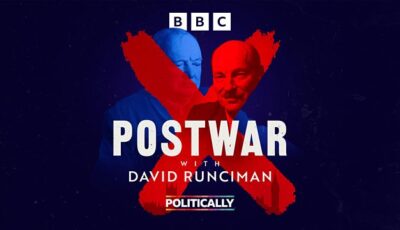
Postwar: 1: The Rejection | Politically
Postwar: 1: The Rejection | Politically
David Runciman tells the story of the 1945 election and the dawn of a new age. Why did Winston Churchill find himself so decisively r...
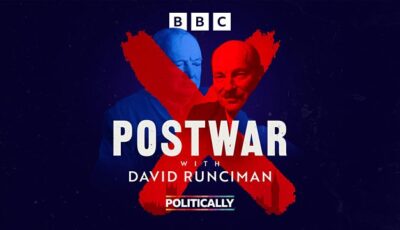
Postwar: E10: India and Empire | Politically
Postwar: E10: India and Empire | Politically
The question of self-government for India would have to be confronted when war was over.

Postwar: E11: Homes for Heroes | Politically
Postwar: E11: Homes for Heroes | Politically
In the end, the election was fought and decided over two main issues: demobilisation and housing.

Postwar: E12: Art, War and Propaganda | Politically
Postwar: E12: Art, War and Propaganda | Politically
With the formation of the Arts Council in 1945, on-going state patronage of the arts began.

Postwar: E14: United Nations | Politically
Postwar: E14: United Nations | Politically
Both main parties supported the United Nations, but they disagreed about what that meant.

Postwar: E15: Debt to America | Politically
Postwar: E15: Debt to America | Politically
In 1945, Britain was the most indebted country in the world.

Postwar: E16: The Result | Politically
Postwar: E16: The Result | Politically
The immediate result of the general election was silence: a three-week hiatus.

Postwar: E17: A New Jerusalem? | Politically
Postwar: E17: A New Jerusalem? | Politically

Postwar: E18: Churchill: Lion in Winter | Politically
Postwar: E18: Churchill: Lion in Winter | Politically
What happened to Winston Churchill in the years after the 1945 general election?

Postwar: E19: Post-postwar | Politically
Postwar: E19: Post-postwar | Politically
When did the postwar period end?

Postwar: E2: Mr Churchill and Mr Attlee | Politically
Postwar: E2: Mr Churchill and Mr Attlee | Politically
With the war in Europe at an end, Churchill and Attlee became fierce election rivals.

Postwar: E20: What if? | Politically
Postwar: E20: What if? | Politically
What would Britain have been like if Winston Churchill had won the 1945 general election?

Postwar: E3: The Beveridge Report | Politically
Postwar: E3: The Beveridge Report | Politically
William Beveridge's plan was an answer to the question of what we were fighting for.

Postwar: E4: Public Opinion | Politically
Postwar: E4: Public Opinion | Politically
How could politicians know what voters were thinking in 1945?

Postwar: E5: The Soldiers' Election | Politically
Postwar: E5: The Soldiers' Election | Politically
During the 1945 election, there were still almost five million servicemen and women.

Postwar: E6: Appealing to Women | Politically
Postwar: E6: Appealing to Women | Politically
How did the election reflect the dramatically changed working lives of women?

Postwar: E7: The Labour Manifesto | Politically
Postwar: E7: The Labour Manifesto | Politically
Uniquely in modern British history, the 1945 Labour Manifesto was a genuine bestseller.

Postwar: E8: Healthcare for All | Politically
Postwar: E8: Healthcare for All | Politically
The war changed many things, and access to healthcare was one of them.

Postwar: E9: Churchill's 'Gestapo' Broadcast | Politically
Postwar: E9: Churchill's 'Gestapo' Broadcast | Politically
Winston Churchill's first election broadcast in 1945 might be remembered as his greatest gaffe.
More resources about The Cold War
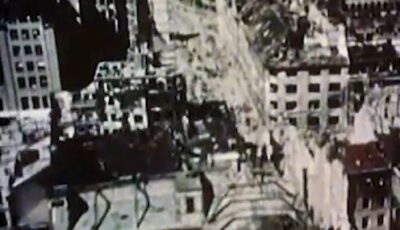
1: Berlin 1945-48 | History File
1: Berlin 1945-48 | History File
Compilation of secondary schools programme about the Cold War, featuring Berlin Crisis, Hungarian Uprising, rise of Soviet leader Nikita Khr...
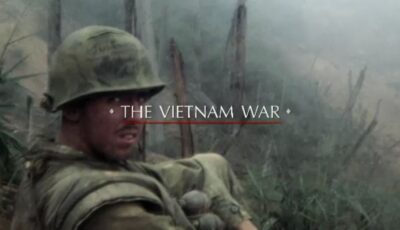
1: Deja Vu (1858-1961) | The Vietnam War
1: Deja Vu (1858-1961) | The Vietnam War
Revolutionaries led by Ho Chi Minh end French colonial occupation. Vietnam is divided in two at Geneva.
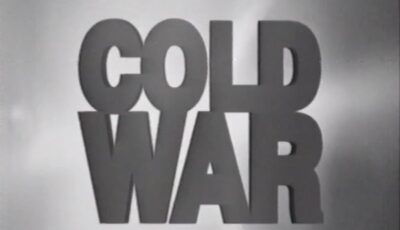
10: Cuba: 1959-1962 | Cold War
10: Cuba: 1959-1962 | Cold War
Fidel Castro comes to power following the Cuban Revolution. Cuba aligns itself with the Soviet Union and the government starts nationalising A...

10: The Weight of Memory (March 1973-Onward) | The Vietnam War
10: The Weight of Memory (March 1973-Onward) | The Vietnam War
While Watergate forces Nixon to resign, the Vietnamese continue to savage one another.
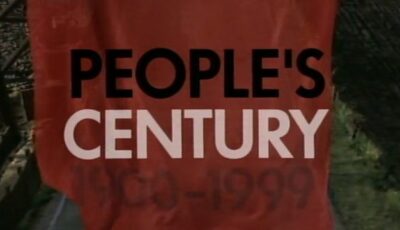
11: 1945: Brave New World | People's Century
11: 1945: Brave New World | People's Century
Despite being allies against Hitler, disagreement and rivalry soon break out between the Soviet Union and the West, leading to t...
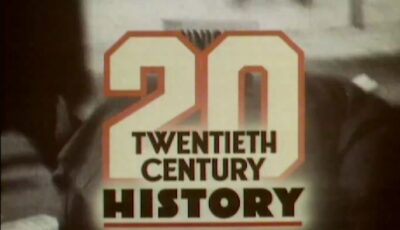
11: The Cold War Confrontation | Twentieth Century History
11: The Cold War Confrontation | Twentieth Century History
The Berlin blockade of 1948-49 and the Korean War 1950-53.

11: Vietnam: 1954-1968 | Cold War
11: Vietnam: 1954-1968 | Cold War
After losing the Battle of Dien Bien Phu the French leave Vietnam. A stream of refugees flee to the south after the Communist north institu...

12: 1948: Boomtime | People's Century
12: 1948: Boomtime | People's Century
Europe is exhausted and impoverished in the years after the Second World War. The United States implements the Marshall Plan to rebuild...

12: MAD: 1960-1972 | Cold War
12: MAD: 1960-1972 | Cold War
The United States nuclear strategy of counterforce, intended to counter a Soviet conventional attack by targeting military facilities, is discr...

12: Mr Kennedy and Mr Khruschev | Twentieth Century History
12: Mr Kennedy and Mr Khruschev | Twentieth Century History
The contest between the United States and the Soviet Union between 1961 and 1963 leading to the Cuban Missile Cri...

14: Red Spring: 1960s | Cold War
14: Red Spring: 1960s | Cold War
Likewise the Soviet Union started the decade with growing openness and optimism. There was also an emerging cohort of youth with no memory o...

15: 1951: Asia Rising | People's Century
15: 1951: Asia Rising | People's Century
Through thrift, hard work and discipline, Japan and later South Korea enjoy economic miracles that bring growth, prosperity and conf...

15: China: 1949-1972 | Cold War
15: China: 1949-1972 | Cold War
Following the Chinese Revolution Mao Zedong aligns China firmly with the Soviet Union. China becomes the recipient of Soviet aid, supports Co...

16: Détente: 1969-1975
16: Détente: 1969-1975
Nixon builds closer relations with China and the USSR, hoping to leverage an honourable US exit from Indochina. The Soviet Union is fearful of a US-C...

17: Good Guys, Bad Guys: 1967-1978 | Cold War
17: Good Guys, Bad Guys: 1967-1978 | Cold War
Under Détente the superpowers continued their rivalry, but carefully avoided direct conflict by courting allies in the developi...

18: Backyard: 1954-1990 | Cold War
18: Backyard: 1954-1990 | Cold War
The United States saw the emergence of leftist movements in different Latin American countries as threatening to its commercial interests,...

19: Freeze: 1977-1981 | Cold War
19: Freeze: 1977-1981 | Cold War
Carter's ambitious proposals for total multilateral nuclear disarmament are rejected by Brezhnev; his championing of human rights does not w...

2: Hungary 1956 | History File
2: Hungary 1956 | History File
Compilation of secondary schools programme about the Cold War, featuring Berlin Crisis, Hungarian Uprising, rise of Soviet leader Nikita Khrus...

2: Iron Curtain: 1945-1947 | Cold War
2: Iron Curtain: 1945-1947 | Cold War
The wartime allies demobilise - the United States enjoys its economic strength and resurgence while Britain and the rest of Europe is e...

2: Riding the Tiger (1961-1963) | The Vietnam War
2: Riding the Tiger (1961-1963) | The Vietnam War
President Kennedy and his advisers wrestle with how deeply to get involved in South Vietnam. As the increasingly autocratic...
